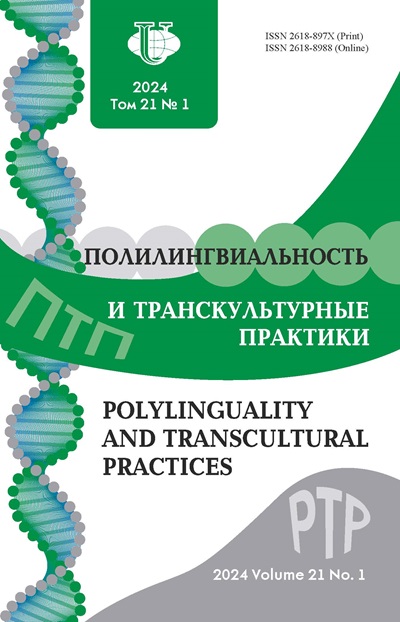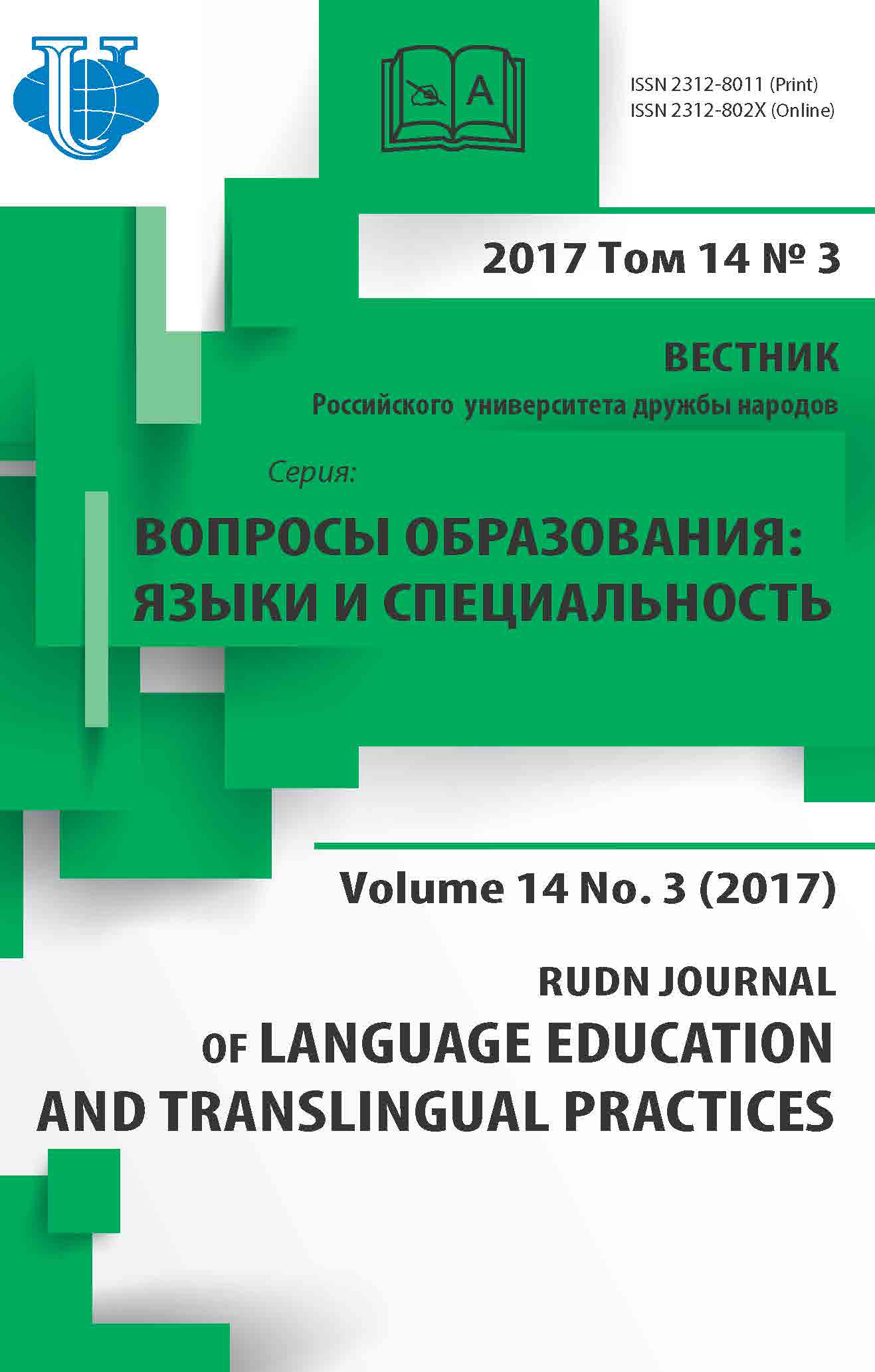ON THE PROBLEM OF UNDERSTANDING THE PERSONAL AND DEMONSTRATIVE PRONOUNS BY CHINESE STUDENTS-PHILOLOGISTS
- Authors: Lu You -1
-
Affiliations:
- Kazan Federal University, Kazan, Russian Federation
- Issue: Vol 14, No 3 (2017)
- Pages: 473-477
- Section: ARSENAL
- URL: https://journals.rudn.ru/polylinguality/article/view/17066
- DOI: https://doi.org/10.22363/2312-8011-2017-14-3-473-477
Cite item
Full Text
Abstract
Teaching Chinese students Russian as a foreign language is caused, on the one hand, by improving their overall language proficiency, on the other hand, the mastery of professional language. In the article the author considers peculiarities of learning Russian language by Chinese students of philological direction, who are studying at the Kazan Federal University. The author examines some of the difficulties of learning by Chinese students of personal and demonstrative pronouns. The urgency of the problem is that foreign students need to master their professional vocabulary and terminology in a short period, to be able to read and reproduce scientific texts according to the profile of learning, etc. In the speech of students there are frequent errors related to the improper use of pronouns, as evidenced by our observations and the experiments. The article aims to offer a linguistic solution to perfecting language skills of Chinese students in the use of personal and demonstrative pronouns. Writings by Chinese students and their oral responses in the classroom for the discipline “Russian language and speech culture” gived the material for the paper. The author came to the conclusion that communicative exercises allow Chinese students to enrich vocabulary words to master grammatical forms, to improve the Russian language, etc. We believe that this study contributes in the area of didactics and might be interesting for teachers who teach foreigners the Russian language at an advanced stage, given the professionally-oriented training.
About the authors
- Lu You
Kazan Federal University, Kazan, Russian Federation
Author for correspondence.
Email: tony.ok@mail.ru
Lu You is a post-graduate student at the Department of Russian Language and Applied Linguistics at the Institute of Philology and Intercultural Communication named after Leo Tolstoy, Kazan Federal University.
Kremlevskaya str., 18, Kazan, Russia, 420008References
- Shvedova N.Yu. Mestoimenie i smysl. Klass russkikh mestoimenii i otkryvaemye imi smyslovye prostranstva [The Pronoun and the Meaning. Russian pronouns and their semantic space]. M.: Azbukovnik, 1998. 176 s.
- Shelyakin M.A. Russkie mestoimeniya (znachenie, grammaticheskie formy, upotreblenie) [Russian pronouns (meaning, grammatical forms, use)]. Tartu, 1985. 91 s.
- Matveikina Yu.I. Mestoimeniya v yazyke sovremennoi prozy: funktsional’nyi aspect [Pronouns in the language of modern prose: the functional aspect]: avtoref. diss. ... kand. filol. nauk. SPb., 2011.
- Babaitseva V.V. Mestoimenie «eto» i ego funktsional’nye omonimy [The pronoun it and its functional homonyms]: monografiya. M.: Flinta; Nauka, 2014.
- Rakhimova D.I., Yusupova Z.F. Semantics and pragmatics of demonstrative pronouns in Russian and Turkic languages // Journal of Language and Literature. Vol. 6. Issue 2. 2015. Pp. 113—116. doi: 10.7813/jll.2015/6-2/22
- Petrova N.A. Lichnye mestoimeniya v kommunikativnom aspekte [Personal pronouns in the communicative aspect]: avtoref. diss. … kand. filol. nauk. Cherepovets, 1995.
- Yusupova Z.F. K voprosu o sovershenstvovanii teoreticheskikh osnov obucheniya russkomu yazyku kak nerodnomu (na materiale izucheniya morfologii) [On improvement of the theoretical foundations of teaching Russian as a foreign language (based on the study of the morphology)]. Filologicheskie nauki. Voprosy teorii i praktiki. 2016. № 10: v 3-kh ch. Ch. I. Pp. 216—218.
- Vinogradov V.V. Russkii yazyk (Grammaticheskoe uchenie o slove) [Russian language (Grammatical Doctrine of the Word)]. M.: Russkii yazyk, 2001.
- Glazunova O.I. Grammatika russkogo yazyka v uprazhneniyakh i kommentariyakh. Morfologiya [The grammar of the Russian language in exercises and comments. Morphology]. SPb.: Zlatoust, 2015.















